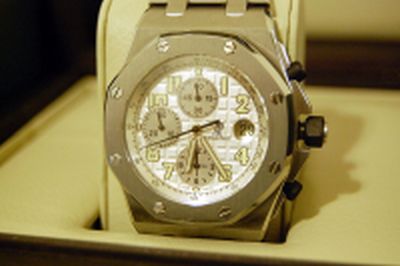In this article, we discuss two trade mark applications – one in the EU, and one in Japan. In each case the application for registration was refused on the basis of non-distinctiveness. These applications bring home the fundamental point that distinctiveness lies at the heart of trade mark law and protection.
THE EU - an application to register the term NOT MILK as a trade mark for, well...not milk
The mark
There's a company in Chile that goes by the interesting name of The Not Company Spa. This company applied to register at the European Union Intellectual Property Office ("EUIPO") the mark NOT MILK – the application covered classes 29 and 32 for milk substitutes and fruit and vegetable beverages. A representation of the mark appears below:

The Examiner
The Examiner ruled that the application could not proceed because the mark was descriptive and non-distinctive in respect of the goods. The examiner made the point that acquired distinctiveness had not been proved.
The Board of Appeal
The matter went up to the Board of Appeal, which agreed with the Examiner. It said that the trade mark was descriptive vis a vis the goods. It said that the public would interpret the words 'Not milk' as meaning products in classes 29 and 32 that do not contain milk or dairy products.
The Chileans were far from chilled - they took this matter up to the next level.
The General Court
At the General Court of the European Union (GC), the Chilean company argued that 'Not milk' could not be considered descriptive of the goods. The EUIPO, on the other hand, argued that the expression has a very clear and plain meaning – it indicates that the goods do not contain milk or dairy products. Making it totally descriptive. The graphic elements in the mark do not alter this!
The GC sided with the EUIPO and ruled that the application should indeed be refused on the basis of descriptiveness/ lack of distinctiveness.
JAPAN - an application to register the shape of a watch as a trade mark
The mark
Watchmaker Audemars Piguet Holding SA (AP) filed an application to register the shape of the Royal Oak watch collection in Japan – a representation of the watch appears below. We're told that the mark comprises 'a dial with tapisserie pattern and hour markers, minute track, date window, an octagonal bezel with eight hexagonal screws, case, crown, and a lug of the famed ROYAL OAK watch collection'. The examiner refused the application.

The Appeal Board
The JPO Appeal Board also refused the application on the basis of lack of distinctiveness. It made the point that consumers would simply see what had been filed as a generic shape of a wristwatch, rather than as an indicator of source. The JPO Appeal Board went on to say that there was insufficient evidence of use to establish acquired distinctiveness. The matter was taken on appeal to the High Court.
The High Court
The High Court said that 'the applied mark lacks distinctiveness since it remains within the scope of expected selection of the shape for functional reasons of a wristwatch.'
On the issue of acquired distinctiveness as a result of substantial use since 1972 (with annual sales in excess of JP¥8 billion for the past six years and significant advertising expenditure), the court made the point that no market research that established acquired distinctiveness had been submitted. There was, therefore, no reason to suppose that the mark had played any role in identifying the source of the watch, Audemars Piguet.
The result
The refusal was upheld.
Final words
Companies are often keen to adopt trade marks that tell the public exactly what the product or service is. But descriptive trade marks can be very difficult to register, and they are unlikely to stand out in the marketplace. Brand owners should, of course, seek legal advice on trade mark adoption or creation.
The content of this article is intended to provide a general guide to the subject matter. Specialist advice should be sought about your specific circumstances.
We operate a free-to-view policy, asking only that you register in order to read all of our content. Please login or register to view the rest of this article.



 *Image Credit
*Image Credit